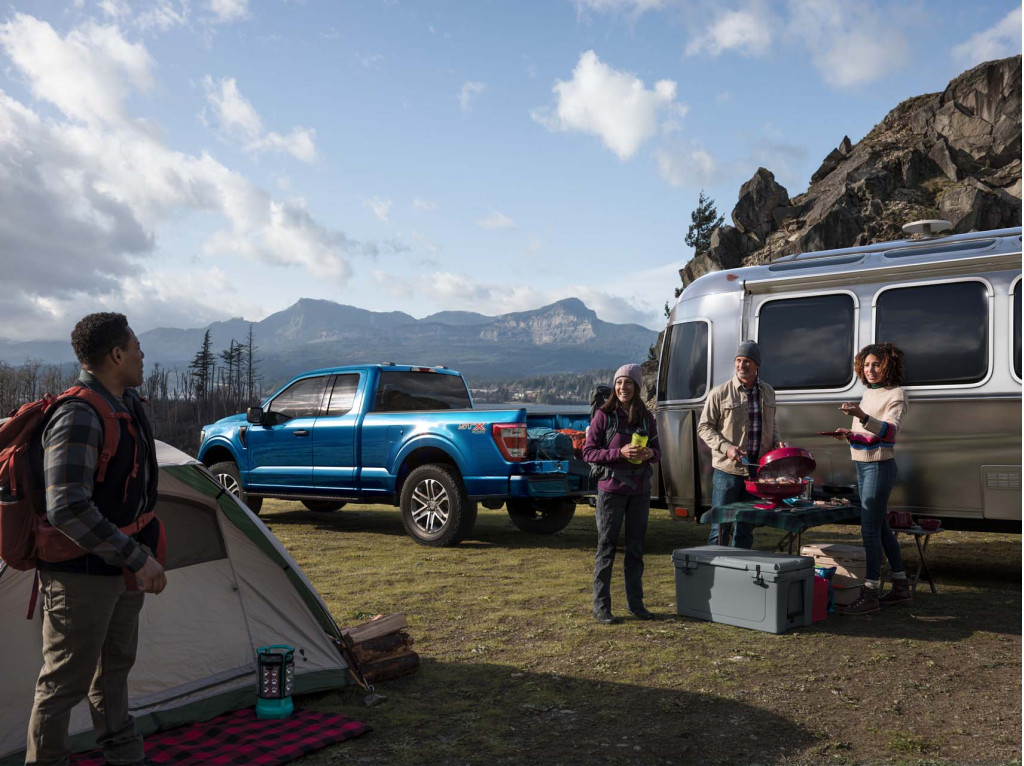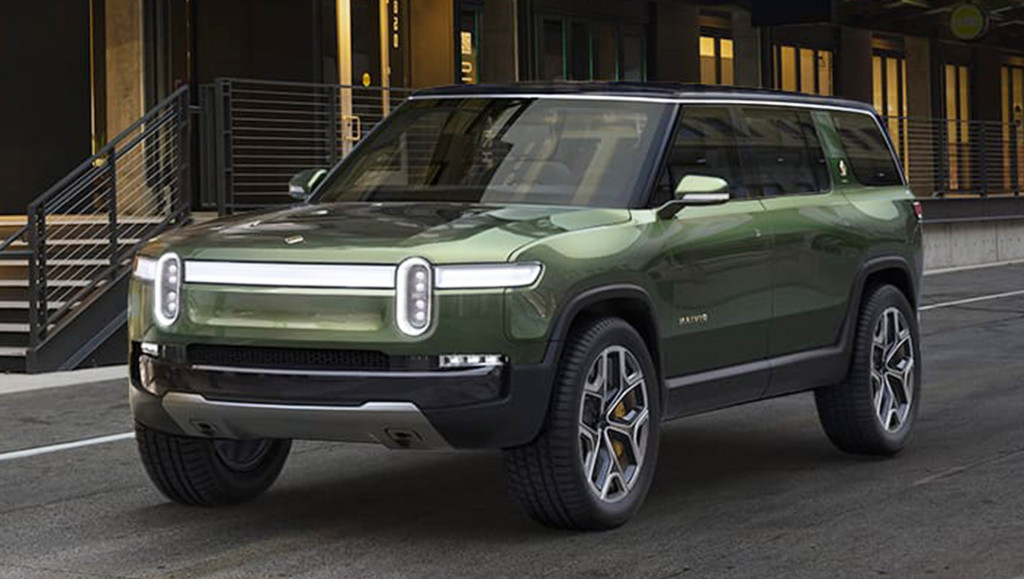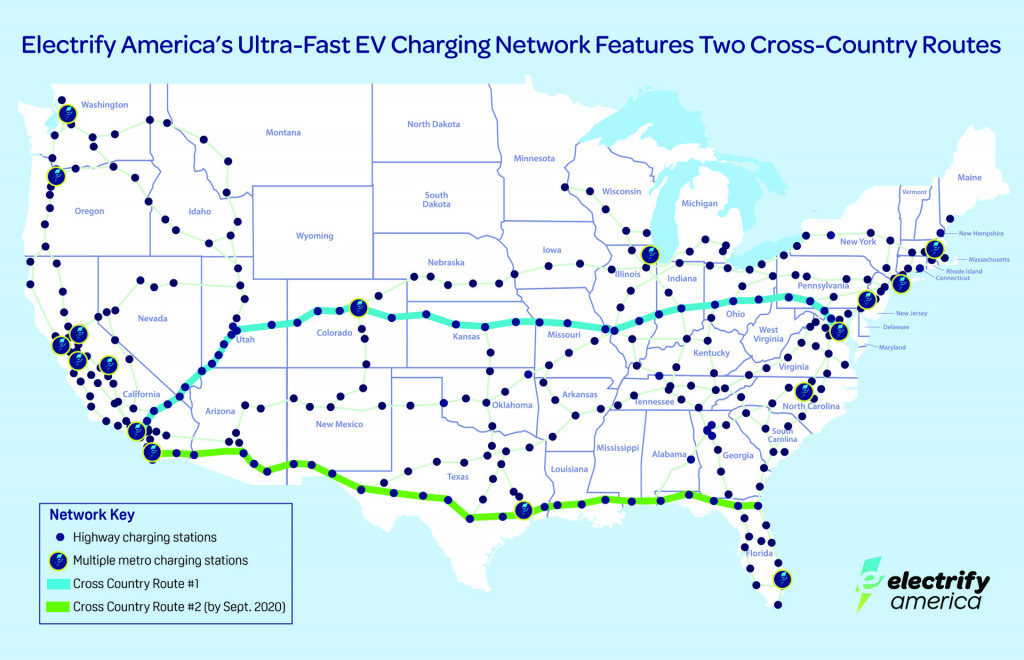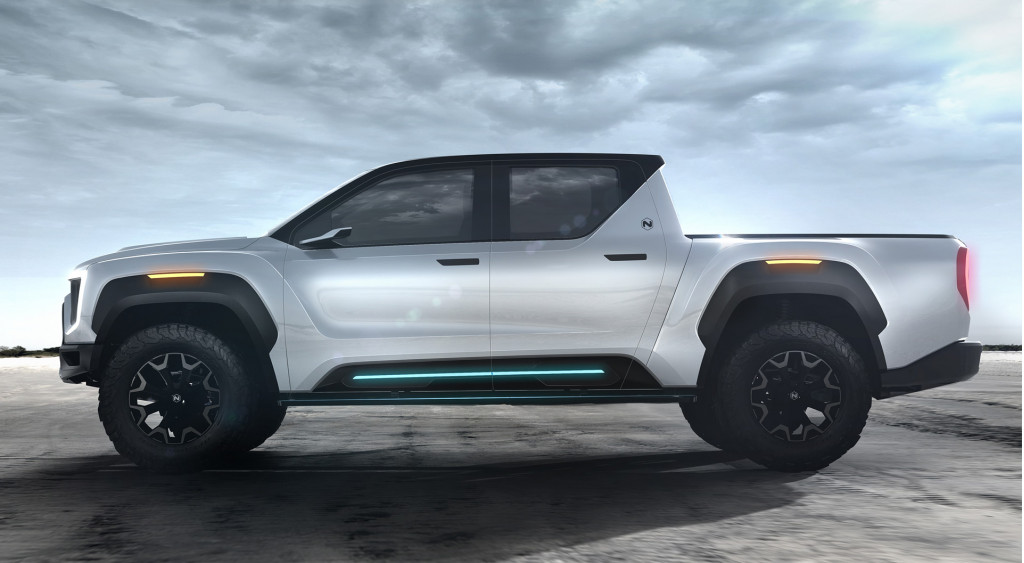Which carmaker ranked last in a leading study of new-vehicle quality?
Why is it that one company plans to use battery-electric and hydrogen fuel-cell technologies together?
This is our look back at the Week In Reverse—right here at Green Car Reports—for the week ending June 26, 2020.
Ford revealed the next generation of the Ford F-150 on Thursday night. And while that didn’t yet include the F-150 Electric, it did include the 2021 Ford F-150 Hybrid, which is badged PowerBoost, with an emphasis on towing and hauling and an onboard generator system capable of powering a worksite. That didn’t keep us from analyzing where that leaves the F-150 Electric due in 2022.

2021 Ford F-150
Lordstown Motors hosted what might have been the most politically charged vehicle product reveal ever, on Thursday. Although a few new points emerged from a press release and Q&A, it went the way of a political rally after the truck was revealed with U.S. Vice President Mike Pence in the passenger seat. Fortunately we’d caught up with CEO Steve Burns earlier in the week to get a little more of the backstory behind the Endurance, which the Ohio company now plans to deliver in summer 2021.
After a report suggested a company exodus from Michigan, Rivian confirmed that it will indeed be moving many (but not all) employees out of Michigan—partly to consolidate vehicle development in California.

Rivian R1S
Tesla has ranked dead last in the latest J.D. Power Initial Quality Survey, released Wednesday. What put them there wasn’t the usual tech glitches, but old-fashioned assembly quality issues.
Mercedes-Benz and Nvidia have allied to develop a new computing architecture that will allow future Mercedes models to be upgraded easily over the air, and potentially get autonomous-driving functions in the future.
Momentum Dynamics high-power wireless charging hardware is being used to outfit 25 Jaguar I-Pace taxis in Oslo, Norway, where if things go according to plan they might never need to physically plug in. Jaguar rolled out some updates for the 2021 I-Pace electric SUV, including a new infotainment system and faster onboard charger. The changes aren’t a done deal for the U.S. quite yet, though.

Qiantu K50 by Mullen
Mullen Technologies hopes to bring the swoopy Qiantu K50 electric sport coupe, along with several electric SUVs, to the U.S., and it’s now making a maneuver to become publicly traded.
Apple revealed a big software update on Monday for the iPhone, and it included a new iPhone-based Digital Key system that will soon work with a wide range of BMWs. Also part of it is a new EV routing feature that will be used in the upcoming BMW i4 electric car.
Nevada is the latest state considering adopting California Clean Car Standards to help meet ambitious greenhouse gas emissions targets.

Tesla Model 3 modified by Lightyear for solar roof testing
The Netherlands-based electric-car startup Lightyear is betting much on the efficiency and effectiveness of its solar panel—so during vehicle development it’s testing its solar roof system on the Tesla Model 3.
Electric utilities and a few other interests together released a West Coast electric highway for commercial trucks, so that even heavy-duty electric semis can do quick recharges up and down I-5 as well as on other arterial highways. And then later in the week California announced a program that will mandate electric trucks in the state starting in 2024—with potential follow-up regulations for diesel trucks.

Electrify America high-power fast-charging routes - June 2020
Meanwhile, Electrify America reported that it has finished the first of its cross-country DC fast-charging routes. What makes them different on that network versus Tesla Supercharging is that they’re spaced about 70 miles apart. A second cross-country route will be finished later in the year. And a recent report from the IEA underscored that 2019 was a very strong year for the expansion of public charging infrastructure.
Hyundai and Kia reached out with the aim to recruit startups in all areas of the electric-car battery ecosystem.

Nikola Badger
Nikola CEO Trevor Milton argued for why battery-electric and hydrogen fuel-cell systems don’t compete. The company plans to use both of them together in some of its semis and trucks, as well as in a personal-use pickup called the Badger.
And with both electric-vehicle battery range and battery sizes pushing higher and higher—and many of the shorter-range EVs landing only in Europe—we asked if the 500-mile range is a red herring. Or is this just part of a uniquely American mindset?
_______________________________________
Follow Green Car Reports on Facebook and Twitter
[ad_2]
Source link
